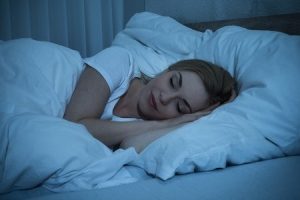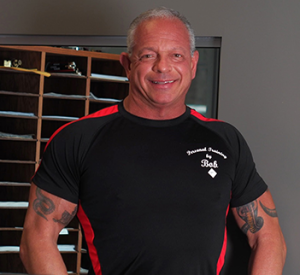
As many ambitious insomniacs have learned, working out in the evening makes most people too alert to sleep well. You need to schedule your workouts to be more in tune with your body’s natural wake and sleep cycles.
In fact, doctors say you sleep best when your metabolism is slower, and that you can control your metabolism by timing your exercise. Heavy exercise speeds up the metabolism, but about six hours later, your metabolism will slow down below where it would have been if you hadn’t worked out.
Try some other arrangements: Train in the morning before work, or during your lunch hour, or in the late afternoon if you can. Late afternoon is a great time for an overachiever to work out and begin unwinding. Then, if your health club has the facilities, enjoy a nice whirlpool or sauna. You’ll still have the whole evening ahead for other activities, including a light supper. Then when bedtime approaches, you might curl up with a good book and relax.
A good night’s sleep is crucial for health. Emotional as well as physical. Insomnia can wear an individual down and impair their functioning, so you’re wise to try and cure yours.
Avoid Caffeine. That cola or two or that cup of tea may have too much stimulant for you in the evening. Even your mid-afternoon cup of Java may be affecting your sleep. So try decaf and see if you notice a difference.
Check with your doctor or pharmacist regarding any medications you may be taking. Both prescription and over-the-counter medications, especially those “non-drowsy” formulas, may keep you awake. Check if you have questions about your medicines.
Don’t go to bed either hungry or over full. Have a light snack late in the evening.
A firm, comfortable mattress is crucial. Buy a new mattress if you need one. It is one of the best investments you can make.
Check your pillow. You need adequate support for your neck and head, but too thick a pillow can be a pain in the neck. If you’re uncomfortable, you won’t get to sleep as quickly as you wish and you won’t get the kind of sleep you should.
Don’t have the bedroom too hot or too cold.
Listen to relaxation tapes or quiet music.
Go to bed later at night. You won’t sleep anyway, so why not do something you enjoy instead of worrying about not sleeping?
Avoid alcohol. A few drinks might make you conk out more easily, but you’ll be more likely to wake up in the middle of the night and have trouble getting back to sleep.
Don’t fret about not sleeping. If you can’t get to sleep within a few minutes or if you wake up and can’t get back to sleep within a few minutes, try reading a book or some similar quiet activity.
Do not resort to sleeping pills. For chronic insomniacs, they can become habit forming.
Avoid daytime naps.
Don’t sleep in really late on the weekend mornings. Waking up at 10 or 11 on Saturday and Sunday may seem to give you extra sleep, but it just throws off your natural cycle and leaves you tired in the long run.
Try to minimize your psychological stress. It is a common factor in sleeplessness. Try not to worry so much, especially about things that are beyond your control. Do your best, and don’t feel guilty that you can’t do more. Even a classic overachiever can’t be superman or woman all of the time.

Robert Bovee Certified Master PPT, RTS, ETS, FTS
Robert continues to remain at the forefront of the industry by providing his clients with a thorough education and the tools to implement that education. By improving his client’s physical health, strength, endurance, cardiovascular fitness and nutritional habits, he is able to motivate them to lead longer, happier and more productive lives.
Guest authors offer experience and educational insights based on their specific area of expertise. These authors are contributing writers for the NFPT blog because they have valuable information to share with NFPT-CPTs and the fitness community at-large. If you are interested in contributing to the NFPT blog as a guest, please send us a note expressing your interest and tell us how you can contribute valuable insights to our readers. We look forward to hearing from you! Send to editor@nfpt.com

